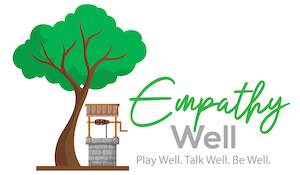When it comes to therapy, we have a lot of choices. You can choose a therapist who meets with you in-person, online, or by phone. You can choose a therapist who specializes in a problem you are most concerned about, such as anxiety, depression, or certain life events. You can choose a therapist who promotes the use of a certain kind of therapy or technique and claims its effectiveness. It can get a little overwhelming.
So, it’s essential to look to the immense amount of research on what makes for positive therapy outcomes. It may be different than what you think. Research shows us that any particular evidence-supported counseling technique is not highly related to therapy outcomes. Let me say that a different way. Research is clear that there is no “answer” to mental health found in one type of therapy. If you’ve been reading that this or that type of specific therapy is the answer to your problem, that is simply not true.
On the therapy side, the largest predictor of positive therapy outcomes is the quality and characteristics of the relationship between therapist and client.
(I should note that the largest contributor to therapy outcomes sits with the client, including motivation, expectations, and unidentified life circumstances but that part is not controlled by the therapy process so this article focuses on the therapy side of things).
This information leads us to the biggest decision you make when entering therapy…How to choose your therapist? Your therapist’s ability to collaborate toward your goals and facilitate expectations, provide you with a relationship of warmth and understanding, operate from competence and knowledge, and sensitive to your cultural values are the keys to successful therapy. Now that you know what is needed in a therapist for success, let’s look at what you can do to select the therapist right for you.
I encourage you to ask questions before you invest time and money in counseling. Interviewing potential therapists is key to you setting up a therapy relationship that works for you. Below are 5 questions that you can ask a therapist from the first phone call. These questions can be asked when you are seeking a counselor for yourself or seeking counseling for your child or a loved one.
1. How and where were you trained to do counseling?
This question speaks to the competency of your therapist. Well-trained counselors receive years of education in the actual facilitation of therapy, are observed and evaluated in their counseling skills, and receive advanced training in their specialty areas. As a client, you may want to be particularly concerned with making sure that your counselor has been observed and evaluated in working directly with clients. You may be surprised about how many counselors have never (seriously, never!) actually been observed counseling with clients and have never received direct feedback on how to improve their counseling skills.
2. What is your theoretical model of change?
This may seem like a lofty question but effective counselors are able to speak to how and under what conditions people make changes to their lives. There is no one theory that is correct but the therapist’s ability to explain and operate from a consistent framework of change is a proven requirement for successful therapy. Additionally, this explanation should be provided in language that is easily understood by clients. So, if you hear the explanation and it just sounds super smart but doesn’t make a lot of sense to you, that’s not on you. That’s on the therapist.
3. What methods do you use in counseling?
Once again, there is no one method that is considered a correct method but successful therapy is based in methods that have been shown to work. When you ask this question, you will want to listen for the therapist’s explanation of research support for their methods. Methods should be based in evidence, meaning the therapist should be able to clearly tell you the evidence that supports the methods they use. Unfortunately, you may also be surprised by how many methods counselors currently use that have absolutely no evidence of success to support their use. This is a problem.
4. How do you measure/evaluate change?
Therapists should be accountable. After all, you are spending a good, sometimes substantial, amount of money, possibly crossing town, or planning to share the most intimate details of your life. You deserve to know how a counselor determines if therapy is going well. Some counselors measure through formal assessments while others engage in less formal ways of assessing progress. But all counselors should be able to share how they work with clients to evaluate success of therapy.
5. How do you facilitate a positive relationship with your clients?
As I mentioned before, the therapist’s ability to be genuine, empathic, and accepting of clients is essential to the therapy process. The therapist’s ability to understand cultural values of a client is also a contributor to effective therapy. Because the therapy relationship is a human relationship, there will be bumps in the road. Good therapy involves caring confrontation and real conversations. In order to address these possible relational inevitabilities, you may follow up this question with another one: How do you respond when clients are unhappy or questioning of you?
The benefit of asking these questions of your potential therapist is that, by the end of the conversation, you should have a pretty clear idea about whether this is a counselor that you can develop a good, working relationship with. And as we know from decades of rigorous research, this is the essential component to therapy being of the most benefit to you.

